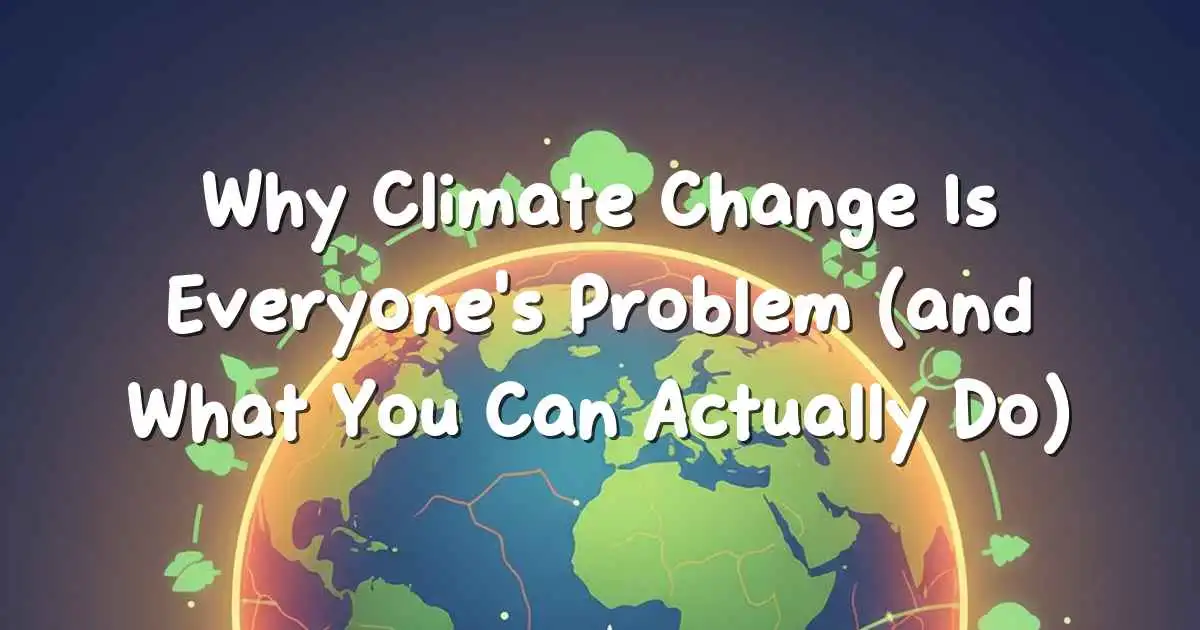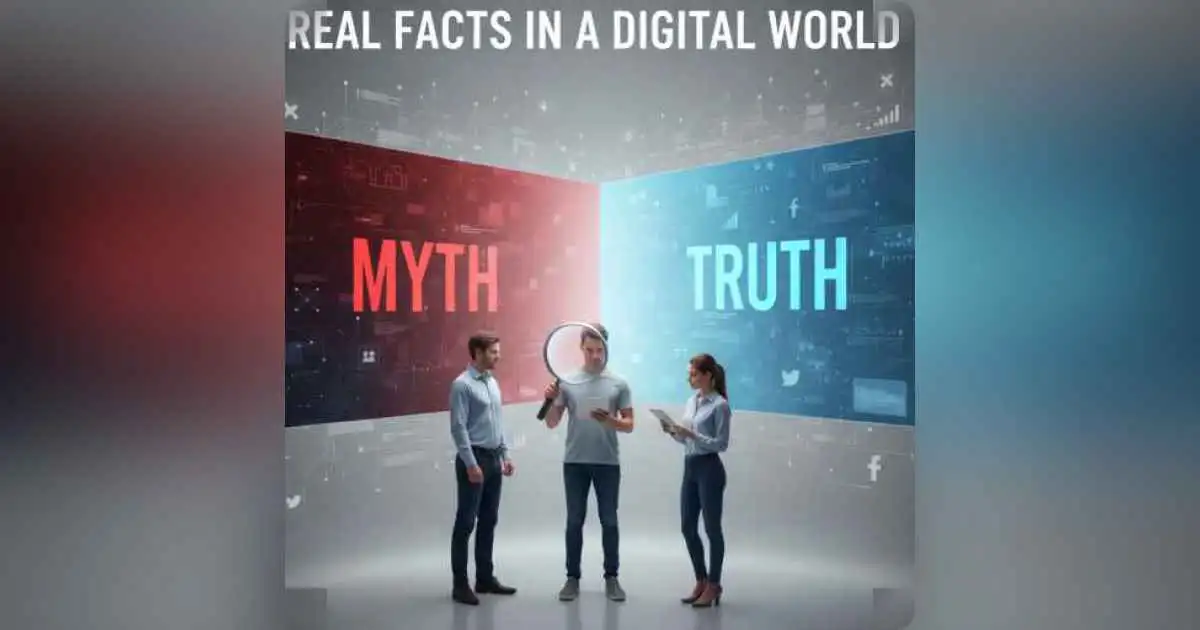Understanding Why Climate Change Affects Everyone
Climate change is no longer a distant concern it’s happening right now. Rising sea levels, unpredictable weather, and worsening wildfires aren’t just environmental problems; they’re social and economic challenges that touch every part of our lives.
From food shortages and health crises to migration and job loss, climate change creates ripples that impact every individual, regardless of where they live. In the U.S. alone, extreme weather events have cost billions in damages and displaced thousands of families.
The message is clear: climate change is not someone else’s problem, it’s ours to solve together.
The Human Side of Climate Change
Behind every statistic is a story of a farmer losing crops to drought, a family rebuilding after floods, or children breathing polluted air.
Climate change magnifies existing inequalities, hitting low-income and marginalized communities hardest.
By acknowledging this, we shift from guilt to shared responsibility, realizing that while none of us can do everything, each of us can do something meaningful.
What You Can Actually Do: Realistic Steps That Matter
It’s easy to feel powerless in the face of a global issue, but change starts small. Every action counts when multiplied by millions of people. Here’s how you can start:
1. Understand Your Carbon Impact
Before you can change, you need to measure.
Use online carbon calculators (like the EPA’s Carbon Footprint Calculator) to estimate your emissions from travel, home energy, and diet.
Once you see where your impact lies, you can set realistic goals for reduction.
2. Adopt Sustainable Habits
Simple choices add up:
-
- Eat less meat and more plant-based foods.
- Walk, bike, or use public transport when possible.
- Unplug electronics when not in use.
- Conserve water and avoid single-use plastics.
Each step helps lower your personal carbon footprint while setting an example for others.
3. Advocate for Policy Change
Individual actions matter but systemic change multiplies impact.
Support climate-focused legislation, vote for leaders prioritizing sustainability, and sign petitions for clean energy initiatives.
Join local groups that organize tree-planting, clean-ups, or awareness events. Community involvement amplifies your voice.
4. Support Ethical Brands
Your money is a powerful tool.
Choose to support companies that use renewable energy, reduce waste, and uphold fair labor practices.
Many sustainable brands now publish their ESG (Environmental, Social, and Governance) reports use them to make informed choices.
5. Educate and Influence Others
Awareness sparks change.
Share reliable information, start eco-friendly challenges, or host small community events.
When friends and family see your commitment, it creates a ripple effect that leads to collective action.
Why Collective Action Is Key
The fight against climate change isn’t won by a few activists it’s won by billions of everyday people taking small, consistent actions.
When communities unite, they influence governments and corporations to follow suit. It’s not about perfection it’s about participation.
How Climate Change Impacts Social Inequality
The poorest communities often live in areas most vulnerable to floods, droughts, or pollution yet they have the least resources to recover.
By fighting climate change, we’re not just saving the planet; we’re promoting climate justice, ensuring that no one is left behind.
How Technology Is Helping
From renewable energy to artificial intelligence, technology is revolutionizing how we combat climate change:
-
- AI-powered systems predict weather and optimize energy use.
- Electric vehicles reduce emissions and promote clean transport.
- Carbon capture tech helps remove excess CO₂ from the atmosphere.
Supporting these innovations accelerates our collective progress.
FAQs: Climate Change and You
1. Why is climate change everyone’s problem?
Because it affects everything from the food we eat to the air we breathe and the economy we depend on. No one is immune to its consequences.
2. Do individual actions really make a difference?
Absolutely. Every reduction in energy use or plastic waste counts. When millions of people act, it creates real pressure for larger change.
3. What are the top 3 things I can do right now?
-
- Reduce energy consumption at home.
- Avoid single-use plastics.
- Support local and national climate-friendly initiatives.
4. How does climate change affect social inequality?
It worsens economic gaps by disproportionately impacting vulnerable groups who lack the resources to adapt or recover.
5. Can technology solve climate change?
Technology helps, but human willpower is key. Innovation must pair with education, policy, and collective action.
How-To: Your Simple Climate Action Plan
Step 1: Measure Your Footprint
Use online tools to track your energy, travel, and consumption habits.
Step 2: Reduce, Reuse, Rethink
Cut waste, conserve resources, and choose reusable products.
Step 3: Support Sustainable Policies
Vote, sign petitions, and hold corporations accountable.
Step 4: Spread Awareness
Use your voice online or offline to influence others.
Step 5: Stay Consistent
Small actions every day are far more powerful than grand gestures done once.
Final Thoughts
Climate change isn’t a “someone else’s” issue it’s a shared challenge that unites us all.
Our planet doesn’t need a few people living perfectly sustainably; it needs everyone trying imperfectly.
Your actions, big or small, are part of the global movement for a better tomorrow.
Related article: The Contribution of Muslims in the Building and Progress of India





